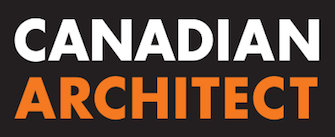AIA Canada Society Journal: The Future of Architecture in Canada – A Follow-Up Conversation

On June 12, 2023, AIA Canada Society hosted members of the architectural community to participate in a panel entitled “Future of Architecture in Canada – A Conversation.” Practicing architects and students in architecture came together to discuss research, ideas and questions on current issues in the field within Canada. They asked: how can architecture better serve our communities and future generations of Canadians?
The participants included students Fangying (Maggie) Liu (University of British Columbia), Jaspal Ubhi (University of Calgary) and Carlee Wale (University of Calgary). It also included practicing architects and educators: Lisa Landrum (University of Manitoba) and Darryl Condon (HCMA, Vancouver). AIA Canada Society’s Dora Ng joined as the panel’s moderator.
The conversation included discussions around climate change, diversity and inclusivity, affordable housing, economic challenges, and technological advancements and their potential in the field. Participants shared common concerns about the future of architecture, especially in light of today’s societal and environmental challenges.
Maggie Liu’s research on affordable housing typologies in North Vancouver questions how affordable housing can respond to the changing lifestyles and needs of residents, and whether certain methodologies can assist in the design-thinking around the long-term uses of a project. She also explores the opportunities and challenges we face in the profession with the use of evolving artificial intelligence technologies, and the role these play in how architects define themselves as creative professionals. To respond to her questions, Liu has looked in particular at co-housing typologies, and used AI to help generate images that offer possibilities for the future of affordable housing in the region.
Turning a lens to urban social issues, Jaspal Ubhi is researching the intangible aspects of segregation in our cities today by looking at the invisible barriers created through ‘redlining’ and other urban design practices that have limited accessibility to certain parts of the city. He asks: what is the potential of technology to combat these barriers in our cities, and to create more cohesive, accessible communities and architecture for our cities today? Ubhi also questions the risks and opportunities that arise from the complexities of digital tools used in conjunction with the design and form-making processes of cities today.
How we can repurpose the existing built fabric of our cities, while considering the technological evolution of our built environment? Carlee Wale’s research looks at the possibilities of adaptive reuse. She urges reforms to architectural education to encourage students to look at existing buildings and their adaptability in accommodating current uses, needs and lifestyles, as a creative exercise. Wale questions the prevalent culture of architecture, which in many circumstances values new buildings by starchitects over existing structures.
A unique blend of research methods, topics and questions is starting to appear in Canada’s architecture schools. Lisa Landrum, who recently was appointed Chair of TMU’s Department of Architectural Science, champions the potential of current and future students in architecture, and has helped to create a multi-year series of in-person workshops that has advanced the conversation around architecture and urbanism in Canada. The Canadian Architecture Forums in Education (CAFÉ), is a unique in the field because of its primary focuses on student voices in architecture, and its involvement of all twelve schools across the country. Launched in 2019, CAFÉ events were hosted at universities across the country, allowing students to voice their concerns, present their ideas, and lead discussions. Themes in the discussions pertained to People, Potential, Place and Prosperity, with continuous student feedback that help to adjust and refine future sessions. Key takeaways from these workshops included the need for current and future architects to foreground climate action, social justice, radical diversity in the profession and accessibility in built environments, public health and personal well-being, community-engaged processes, and Indigenous empowerment.
Architect Darryl Condon, managing partner of Vancouver-based HCMA, discussed his work with the Rise for Architecture initiative. This project was created to advocate for an architectural policy for Canada. The larger consultation and research that emerged from this effort resulted in identifying several key calls to action for the profession at large. First, they call to renew the governance partnership between organizations within the profession, including regulators, schools, advocacy organizations and governments. Second, the organizers call for collaboration to achieve the goal of an architectural policy for Canada. Third, they call for an expanded definition of public interest. Next, they call for all to commit to dramatically improving equity within the profession. They also call for involving the public in the processes that shape their communities. Finally, they call on both individual architects and firms to contribute solutions to the big social challenges of our time.
All of the panellists of the recent webinar brought to light important notions, including the value of design-thinking and the need for social justice. There was keen interest from the seminar’s audience on how to join future CAFÉ sessions as well as participate in the Rise for Architecture initiative, enabling for further dialogue on the future of architecture in Canada.
‘Future of Architecture in Canada – A Conversation’ is just the beginning of a discourse that AIA Canada Society will continue to facilitate, hoping to further address the profession’s many challenges through continued research, discussions, teaching and practice.
The recording of the webinar ‘Future of Architecture in Canada – A Conversation’ can be found on the AIA Canada Society website, www.aiacanadasociety.org.
